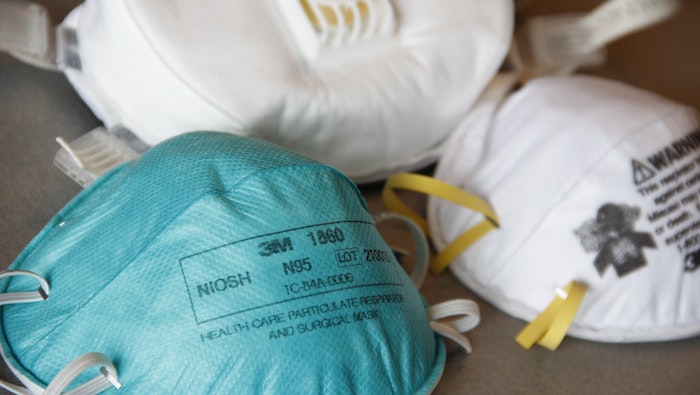COVID-19 has resulted in a public health emergency that has increased demand for N-95 filtering facepiece respirators (FFRs), as well as fit-testing supplies ordinarily used to ensure that respirators fit workers properly and provide expected protection. Shortages of FFRs and fit-testing supplies have posed tremendous challenges. For essential operations to continue, many employers have had to utilize contingency and crisis strategies that do not ordinarily comply with OSHA’s Respiratory Protection standard. Examples of these strategies include extended use of disposable FFRs, decontamination and reuse of disposable FFRs, and the use of foreign FFRs not approved by the National Institute for Occupational Health and Safety.
Employers should understand that deviations from normal respirator use, which may cause increased risk for workers, may only be allowable during this public health emergency because the alternative of no respiratory protection presents a greater danger to workers. In order to ensure adequate protection for workers utilizing contingency and crisis strategies, OSHA has issued temporary enforcement guidance to its Compliance Safety and Health Officers (CSHOs). This guidance allows CSHOs to exercise enforcement discretion in cases where, due to supply shortages, an employer is unable to comply with the Respiratory Protection standard and instead chose to implement a contingency or crisis strategy for respirator use.
OSHA’s Temporary Enforcement Guidance
OSHA’s temporary enforcement guidance allows CSHOs to exercise enforcement discretion when considering issuing citations under the Respiratory Protection standard, or other standards. This enforcement discretion is only applied when circumstances beyond the employer’s control prevent compliance with parts of the Respiratory Protection standard, and the employer makes objectively reasonable efforts to obtain and conserve supplies. Employers are expected to explore options and modify practices to provide the best available protection for workers, and to fully comply with the Respiratory Protection standard once supply chain issues are resolved. OSHA will revoke the temporary enforcement discretions once it determines the discretions are no longer necessary.
Employers Seeking Relief Under Temporary Enforcement Guidance
Employers must understand that this temporary enforcement guidance does not offer blanket waivers or exemptions for complying with any OSHA standards, including the Respiratory Protection standard. Rather, they allow for CSHOs to use enforcement discretion during the COVID-19 pandemic only in cases where an employer can demonstrate that it made objectively reasonable efforts to obtain and conserve supplies of FFRs and fit-testing supplies.
Non-compliance still violates the standard. However, this temporary guidance provides CSHOs discretion to refrain from issuing citations to employers for violating certain provisions of the Respiratory Protection standard or other standards, where compliance with these provisions is affected by supply shortages.
Under the temporary enforcement guidance, CSHOs have specific criteria to assess during an inspection. Among other things, CSHOs will look for documentation and other information showing that the employer:
- Utilized strategies to prioritize and conserve the use of N-95s according to CDC guidance;
- Maintained a fully compliant Respiratory Protection Program (RPP) in all other regards;
- e., a written program covering procedures for medical evaluation of employees, respirator maintenance and care, and employee training
- Reassessed their engineering and administrative controls, work practices, and identified and implemented changes to decrease the need for N-95s without exposing employees to additional hazards;
- Monitored respirator supplies and made objectively reasonable efforts to obtain NIOSH-approved respirators;
- In healthcare settings, prioritized the best respiratory protection options available for use during high hazard aerosol-generating medical procedures;
- Explored options to obtain and use other types of respirators that offer equivalent or higher protection when N-95s were not available; and
- Monitored fit-testing supplies and made objectively reasonable efforts to obtain fit-testing supplies.
If employers can demonstrate objectively reasonable efforts to comply with the Respiratory Protection standard and/or other health standards, then OSHA may exercise enforcement discretion in accordance with the temporary enforcement guidance during the COVID-19 pandemic.
For help with OSHA matters, please call (312) 894-3322 or fill out our contact form.
Additional OSHA/COVID-19 Resources
Steps to Take to Prepare for COVID-19 Claims NOW

